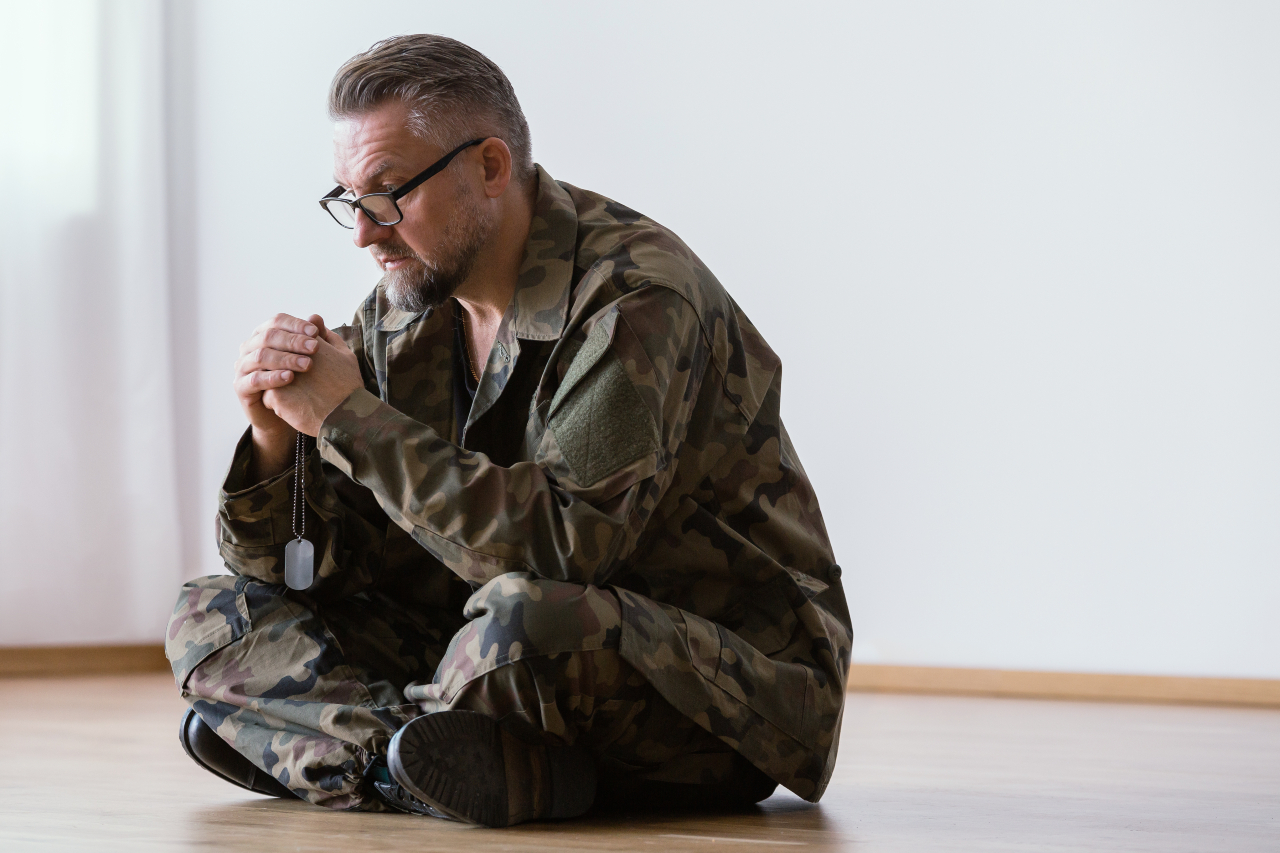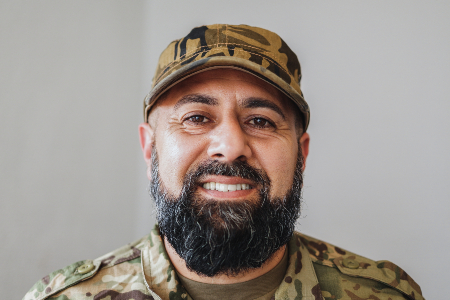Veteran Suicide Prevention
Just in California alone, 473 veterans committed suicide during the year 2019, while nationally 6,261 veterans committed suicide in 2019. Despite the fact that veterans only account for 7.9% of the population of the US, they account for 13.5% of suicide deaths in the nation.
Although there is no single cause of suicide among Veterans, treating and preventing mental health and substance use conditions can help prevent suicide. Empowering veterans to live and thrive in their communities by giving tools and support can reduce the risk for suicidal thoughts and behaviors.
Solara Mental Health in San Diego provides mental health services for veterans who are struggling with suicidal behaviors and thoughts. We are contracted with VA insurance (via TriWest) which allows us to provide affordable mental health services to veterans in need. When authorized by the VA, Solara can even provide transportation to and from our facilities, housing, and other accommodations to better serve our veterans in need.
Signs of Suicidal Thoughts
The best way to prevent suicide is to recognize troubling signs that can lead to suicidal behaviors and thoughts. You do not need to be a mental health expert to be able to recognize these signs of struggle in yourself or in a veteran you care about.
These signs indicate that a Veteran may need help:
- Hopelessness, feeling like there is no way out
- Anxiety, agitation, sleeplessness, or mood swings
- Feeling like there is no reason to live
- Feelings of rage or anger
- Engaging in risky activities without thinking
- Increasing alcohol or drug use
- Withdrawing from family and friends
- Appearing sad or depressed most of the time
- Feeling excessive guilt, shame, or sense of failure
- Losing interest in hobbies, work, or school
- Neglecting personal welfare and appearance
- Showing violent behavior, like punching a hole in the wall or getting into fights
- Giving away prized possessions
- Getting affairs in order, tying up loose ends, or writing a will
Signs that Need Immediate Attention
These signs require immediate attention. If you or a veteran you know is experiencing any of these symptoms, please get help right now.
- Expression of a desire to hurt or kill themselves
- Looking for ways to kill themselves
- Talking about death, dying, or suicide
- Increasing drug and alcohol use
- Acquiring or talking about acquiring weapons for self-harm
- Accumulating large amounts of medication
Risk Factors
Risk factors for suicide are conditions, behaviors, or characteristics that may increase the chance a veteran may try to take their own life. Risk factors can be based on life circumstances, psychological issues, or cultural issues that the veteran has experienced.
Risk factors for suicide in the veteran population include but are not limited to:
- Difficulty readjusting following deployment or to civilian life
- Access to lethal means of self-harm like firearms or medications
- Loss from deaths and/or suicides among family or community
- Financial or legal challenges
- History of abuse, family violence, neglect, or trauma
- Medical or mental health challenges
- Prior suicide attempt
- Family history of suicide
- Alcohol or substance abuse
- Severe or prolonged stress or combat-related injuries
- Negative attitudes towards getting help
- Limited social and family support
Protective Factors
Protective Factors are characteristics that can decrease the likelihood of developing negative consequences or that can reduce a risk factor’s impact. Protective factors may be seen as positive opposing events that can be personal or environmental.
To reduce the risk of developing suicidal behaviors or thoughts veterans can begin:
- Developing positive coping skills
- Having reasons for living or a sense of purpose in life
- Feeling connected to other people
- Accessing mental health care
Ask the Tough Question
The tough question that needs to be asked when a veteran may be struggling with suicidal behaviors or thoughts is “are you thinking of suicide?” or “have you had thoughts about taking your own life?”
If you have identified warning signs and symptoms of suicidal behaviors or thoughts in yourself or a veteran you care about, ask these tough questions. Instead of showing judgment, ask compassionately in order to get an honest answer.
Validate the Veteran’s Experience
Supportive and encouraging conversations are important here – an open, nonjudgemental conversation with attentive listening. The receiver should listen to better understand one’s situation and validate their experiences.
Encourage Treatment
If you or a veteran you know is having suicidal thoughts, remain calm and know that help is available. Being alone while having these thoughts or behaviors can cause negative consequences. Keeping these thoughts and behaviors about suicide a secret can cause a safety issue and getting help is the way to prevent suicide.
Residential or outpatient mental health services are a regular course of treatment for veterans with suicidal ideation. Depending on the diagnosis and treatment plan established, medication management and psychotherapy may be utilized. Medication management is prescribed on an as-needed basis and will be determined by your treatment team. Psychotherapy, also called talk therapy, is used in patients to help reduce suicidal thoughts.
Transportation, Housing, & Accommodations for Vets
Solara Mental Health is able to provide transportation to and from its facilities in San Diego, CA for most of the TriWest covered states.
Along with transportation, Solara can provide long-term housing at its beautiful Pacific Beach, San Diego residences that are close to the treatment center. These housing accommodations can be provided for both inpatient and outpatient treatment that may follow inpatient treatment.
Veterans may remain in housing for as many weeks or months as the VA insurance authorizes. We often find that the VA authorizes a considerable length of stay, allowing us the ability to provide quality treatment for the amount of time needed to heal and recover.
View our facilities in Pacific Beach to get a preview of what you might expect when choosing Solara Mental Health as your care provider.
Get Care in San Diego
At Solara Mental Health in San Diego, CA our psychiatrists and team will conduct a thorough mental assessment to obtain a clear understanding of the veteran’s past and present situation. Then, the psychiatrist will be able to provide a proper diagnosis and develop a treatment plan that will best fit the veteran’s needs whether that be psychotherapy, medication, or a combination of both.
Solara Mental Health is VA contracted as a community care provider in order to help veterans with their suicidal ideations at an affordable cost. If authorization occurs, we are able to provide housing, transportation, and accommodations to veterans in our care.
If you or a veteran you care about is displaying suicidal behaviors or thoughts, reach out to Solara Mental Health for help. Our team of professionals can answer any questions you may have and give you a better understanding of our program.
Resources for Veterans
- Veteran Crisis Line – 1-800-273-8255 Press 1 for Veterans. 24/7 crisis line that connects Veterans in crisis and their families and friends with qualified, caring Department of Veteran Affairs responders through a confidential toll-free hotline, online chat, or text.
- DOD’s Military OneSource – 1-800-342-9647 24/7 confidential resource for information, answers, and support to help Veterans, service members, and their families
- Vets 4 Warriors – 855-838-8255 24/7 confidential peer support network accessible by phone, chat, text, or email for Veterans, service members, family members, and caregivers.
- Psychological Health Resource Center – 866-966-1020 24/7 phone, chat, or email for service members, veterans, family members, clinicians, commanders, or anyone with a question about the psychological health in the military





